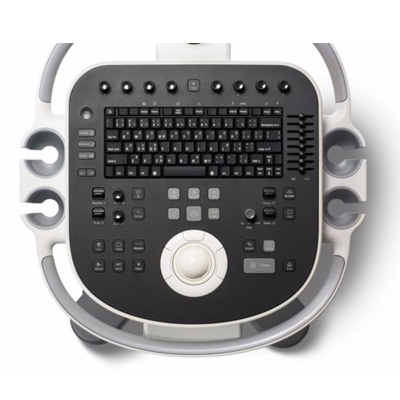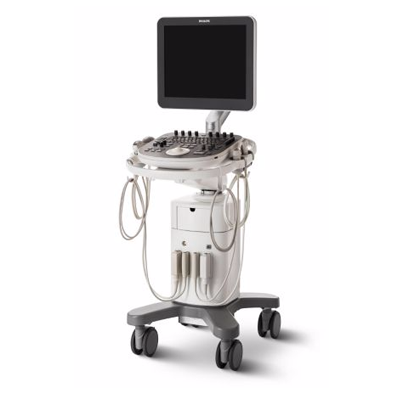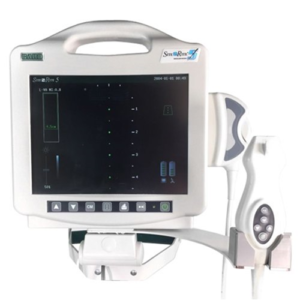“GE Venue Go Ultrasound System” has been added to your cart. View cart
Description
- Description:
- Midrange ultrasound system primarily used for women’s health imaging but also offers capabilities for vascular, cardiac, small parts, and echo exams.
- Shares architecture with ClearVue 350, 550, and 650 but offers more advanced features.
- Features include iScan, AutoSCAN, SonoCT, and XRES.
- Additional 4D imaging options such as 4D Convex, 4D transvaginal, Auto Face Reveal, iSlice, and Fetal STIC.
- Provides 2D, 3D, and 4D imaging options along with blood flow and stress imaging.
- Quick action buttons for commonly used obstetric measurements and imaging modes.
- Ergonomic design with a 19-inch monitor on an articulating arm and a height-adjustable control panel for user comfort.
- Specifications:
- Dimensions:
- Width: Keyboard: 500 mm (19.7 in), Caster: 720 mm (28.3 in)
- Depth: Maximum: 697 mm (27.4 in), Caster: 800 mm (31.5 in)
- Height: Maximum: 1412 mm (55.6 in)
- Weight: 56 kg (123 lb)
- General Specifications:
- Digital beamformer
- Displayed imaging depth: 0 – 33 cm (probe dependent)
- Minimum depth of field: 0 – 2 cm (probe dependent)
- Maximum depth of field: 0 – 33 cm (probe dependent)
- Continuous dynamic receive focus/continuous dynamic receive aperture
- Adjustable dynamic range up to 120 dB
- Power:
- Nominal input voltage: 100-240 VAC, frequency 50/60 Hz
- Power consumption maximum: 400 VA with peripherals
- System Overview:
- Monitor: 19” LCD
- Probe Ports: 4
- Connectivity:
- DICOM 3.0: Yes
- USB: Yes (3 ports)
- HDD/SDD: 500GB
- DVD/CD RW: Yes
- Imaging Modes:
- 2D, M mode: Yes
- M-color Flow Mode: Yes
- Anatomical M-mode: Yes
- Color, Power Angio, Pulse Wave Doppler: Yes
- Freehand 3D: Yes
- Live 3/4D OB/GYN: Yes
- STIC (Spatio-Temporal Image Correlation): Yes
- B Flow: Yes
- Panoramic Imaging (=Logiq view): Yes
- Strain-based Elastography: Yes
- Dimensions:














